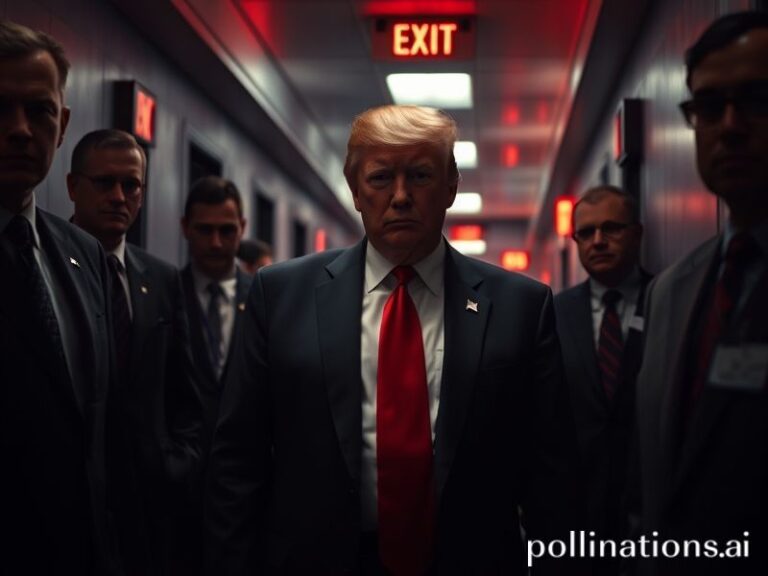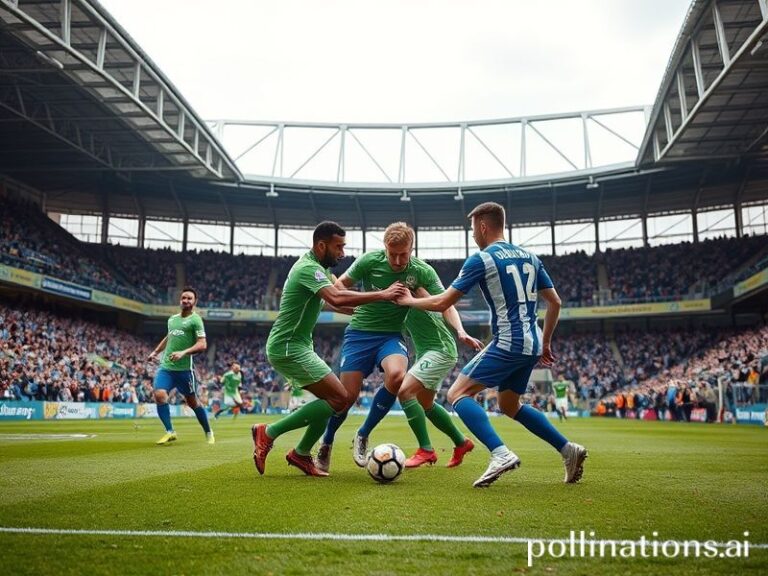Chelsea vs Leicester: A Premier League Match That Explains the Entire World Order
The Chelsea vs Leicester City fixture, a quaint Midlands-London pas de deux, has quietly become the Premier League’s own Rorschach test for the global order. Watch it from a café in Lagos where the generator coughs like an asthmatic goalkeeper and you’ll see a morality play about inherited privilege versus insurgent hustle. Stream it in a co-working pod in Seoul and it looks like a quarterly earnings call in studded boots. Wherever you are, two truths hold: someone is wearing an ironic retro kit, and someone else is calculating the carbon footprint of the private jet that flew the referee in.
For the uninitiated, Chelsea are the footballing equivalent of a Cayman-registered SPV: lavishly funded, expensively lawyered, and technically domiciled in London for tax purposes. Their roster is a United Nations of hair stylists—Senegalese centre-back, Ukrainian left-back, Ecuadorian enforcer—each auditioning for citizenship in whichever passport gets them through the post-Brexit e-gates fastest. Leicester, meanwhile, are the club your hedge-fund cousin calls “value investing”: a modest East Midlands ensemble once famous for Richard III and Walkers crisps, now famous for turning unwanted players into Ferraris, then flipping them for Gulf-state loose change.
The geopolitical subplot is delicious. Chelsea’s ownership currently resides in a state of suspended animation: sanctioned oligarch out, American private-equity vultures in, all overseen by a British government that can’t run a railway but can freeze a super-yacht at the drop of a sanctions list. Leicester’s Thai owners, meanwhile, learned everything about soft power from a single open-top bus parade in 2016 and have been dining out on the halo ever since—proof that even absolute monarchies enjoy an underdog story when it comes gift-wrapped in fairy-tale branding.
Broadcast rights? Think of them as the new opium wars. From Jakarta’s smoky warungs to Toronto’s sub-zero pubs, the match beams in on whatever platform hasn’t yet been banned by the local despot. Algorand blockchain streams in Buenos Aires freeze whenever Messi posts, Chinese state television cuts to a military parade at the merest hint of a pitch-side advert for a betting company, and in Saudi Arabia the feed is suspiciously crisp—almost as if the sovereign wealth fund were practising for a future purchase. Each pixelated glitch is a reminder that the “global game” is really just a battle over who gets to sell whom a dream of Englishness that England itself can no longer afford.
On the pitch, the tactical narrative writes itself: Chelsea’s manager—an expensively assembled German who speaks five languages yet still struggles to translate “defensive transition” into English—deploys a formation last seen on a PowerPoint slide titled “Synergy Through Verticality.” Leicester’s gaffer, a man who looks like he still irons his own tracksuit, responds with the classic 4-1-4-1 of a side that knows it can’t out-spend you but might out-run you until your amortisation schedules catch up. Somewhere in the 73rd minute, when the substitutes’ board glows like a Bloomberg terminal, you realise both benches cost more than the GDP of Montenegro.
And what of the fans? The Stamford Bridge faithful, half of whom arrived via the District line clutching oat-milk lattes, chant about history they read on Wikipedia. The away end belts out songs composed on WhatsApp voice notes the night before, punctuated by references to Thai duty-free and the price of petrol. Each set thinks the other is the embodiment of late-stage capitalism; both are correct.
Full-time whistle blows, the world exhales, and the scoreline is immediately fed into a thousand betting algorithms from Manila to Malta. Somewhere a crypto-bro in Miami loses the price of a studio flat on a last-minute VAR decision; somewhere else a Lagos street vendor pockets enough naira to keep his daughter in school another term. The planet keeps spinning, the rich get richer, the underdog gets rebranded, and we queue up to do it all again next Saturday—proof that the only truly borderless currency is hope dressed up as outrage.







